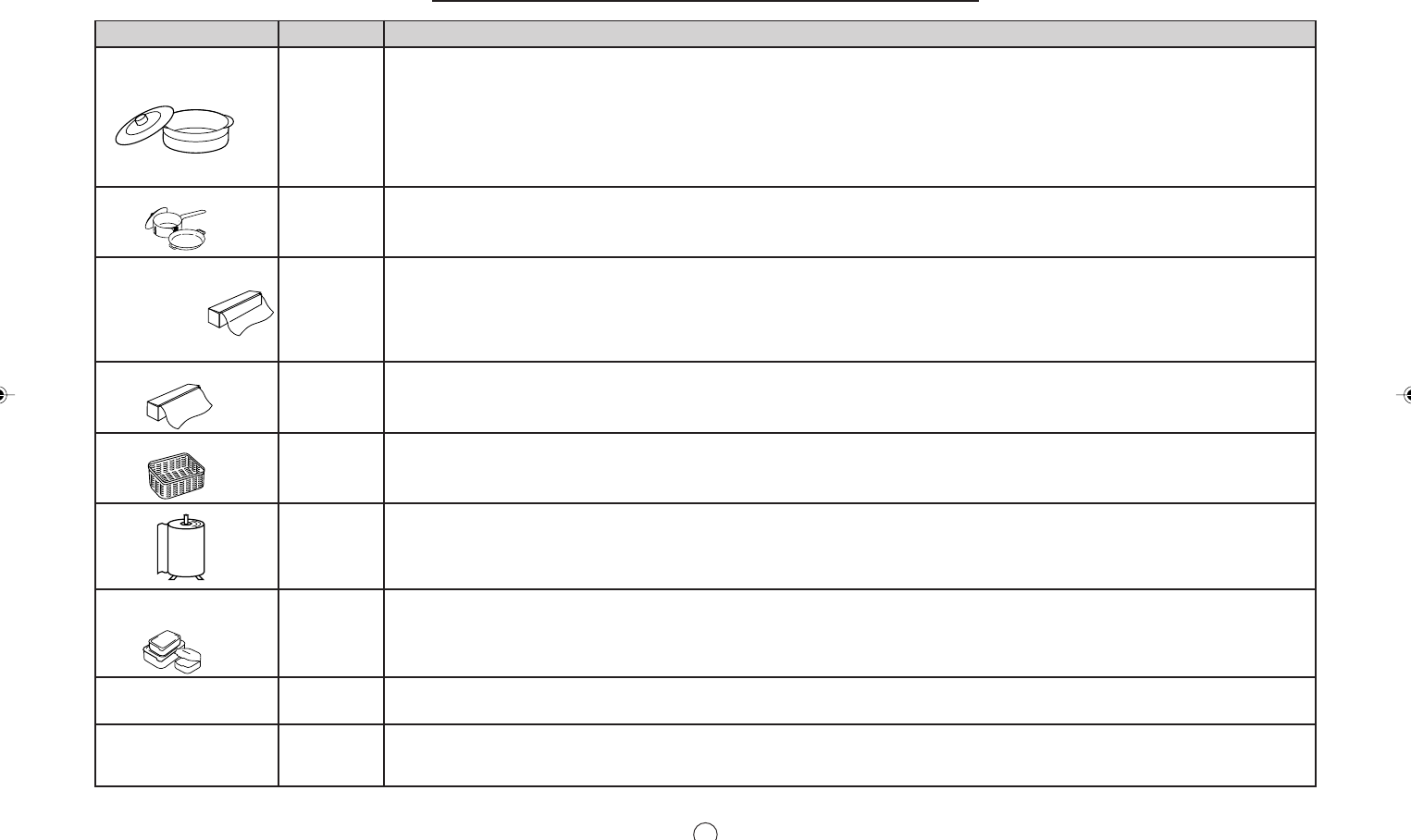
2
GLASSWARE/CERAMIC
(HEAT RESISTANT)
METAL COOKWARE
PLASTIC WRAP/
OVEN BAGS
ALUMINIUM FOIL
STRAW AND WOOD
PAPER
PLASTIC COOKWARE
MICROWAVE SAFE
BROWNING DISH
THERMOMETERS
•
MICROWAVE SAFE
•
CONVENTIONAL
)
MICROWAVE
SAFE ONLY
(
COOKWARE AND UTENSIL GUIDE
GLASSWARE
• Ordinary glass is not suitable for cooking but may be used for short periods for heating foods.
CERAMIC
• Most ovenproof china, and ceramics, are suited.
• Avoid dishes that are decorated with gold or silver leaf.
• Avoid using antique pottery.
• If unsure, check with the manufacturer.
• Metal cookware should be avoided when cooking in the microwave oven.
• Microwave energy is reflected by metal.
• Plastic wrap can be used to cover food.
• Some shrinkage of the wrap may occur, over an extended cooking time.
• When removing wrap, lift it in such a way to avoid steam burns.
• Do not tie oven bags with metal twist ties, substitute with string.
• For cooking food with high fat content, do not bring the wrap in contact with the food as it may melt.
• Small amounts may be used to shield certain parts of meat and fish when cooking or defrosting.
• Remove food in foil trays, if possible, and place in a microwave safe dish.
• If not possible, place the foil tray onto a heat proof plate allowing 2.5 cm between the walls of the oven.
• Excessive over heating of these materials may cause a fire in the microwave oven.
• Paper towels and waxed paper are suitable to use to prevent splatters.
• These are suitable for use when reheating foods or for short cooking times.
• Ideal for cooking, reheating and defrosting.
• Some microwave safe plastic cookware are not suitable for cooking foods with high fat and sugar content.
• Ensure that the preheating time of the dish is not exceeded.
• Ensure that a microwave heat proof dinner plate or suitable insulator be placed between the turntable and the browning dish.
YES
NO
YES
FOR
SHIELDING
NO
YES
YES
YES
YES
NO
AdviceUseUtensil
SCA/SCNZ R395Y C/B,P01-09 11.5.31, 10:09 AM2


















